Publications
Articles, publications, books, tools and multimedia features from the U.S. Institute of Peace provide the latest news, analysis, research findings, practitioner guides and reports, all related to the conflict zones and issues that are at the center of the Institute’s work to prevent and reduce violent conflict.
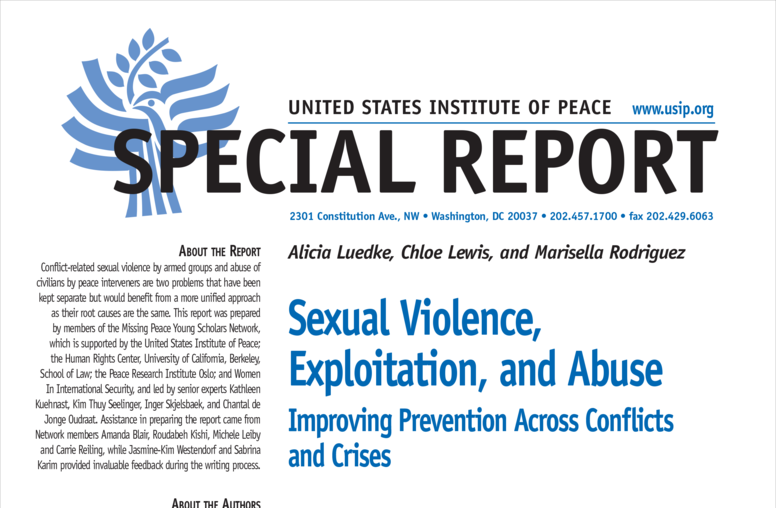
Sexual Violence, Exploitation, and Abuse
Former UN secretary-general Ban Ki-moon and current UN Secretary-General António Guterres have both recognized sexual exploitation and abuse (SEA) by interveners as a risk to peacekeeping operations, which has led to a series of new policy responses. As institutions begin to adopt new...
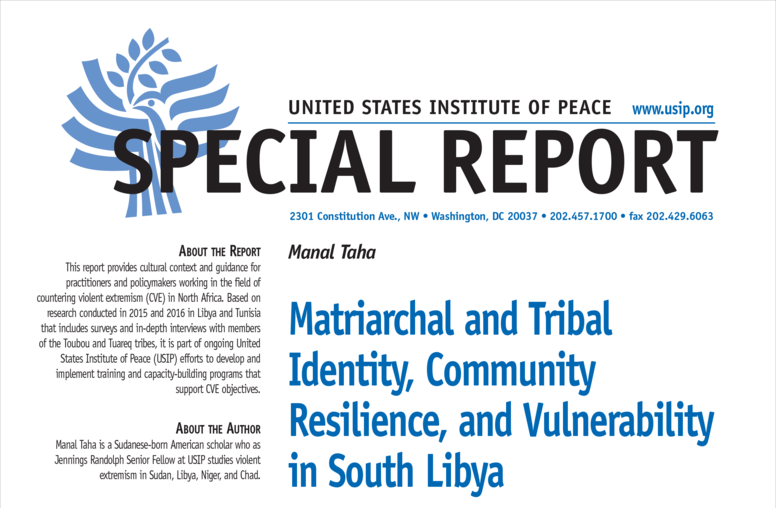
Matriarchal and Tribal Identity, Community Resilience, and Vulnerability in South Libya
Since the Libyan revolution and fall of Muammar Gadhafi in 2011, violent extremist organizations (VEOs) have taken advantage of the subsequent lack of security to secure a foothold in the country. The south, however, has proved resilient to VEO recruitment. This report examines the two...
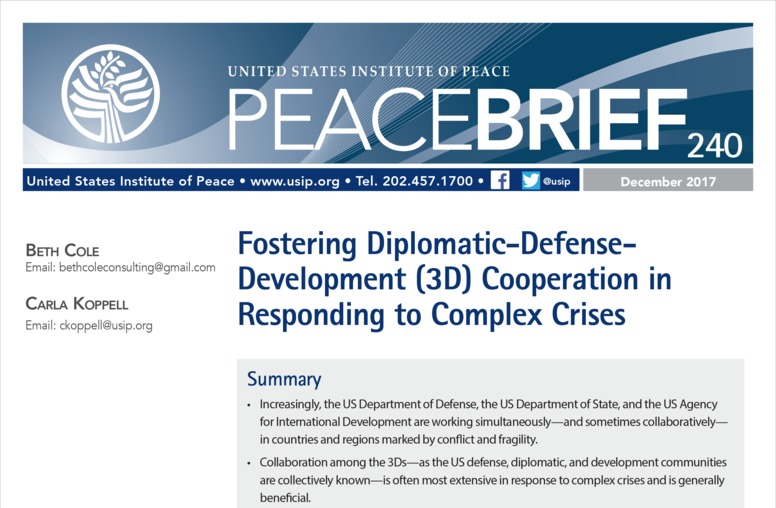
Fostering Diplomatic-Defense-Development (3D) Cooperation in Responding to Complex Crises
The US diplomatic, defense, and development communities (known as the “3Ds”) increasingly find themselves working together to tackle complex crises. This collaboration has already proved its worth, but how can it be made even more effective? A recent USIP research project sought to...
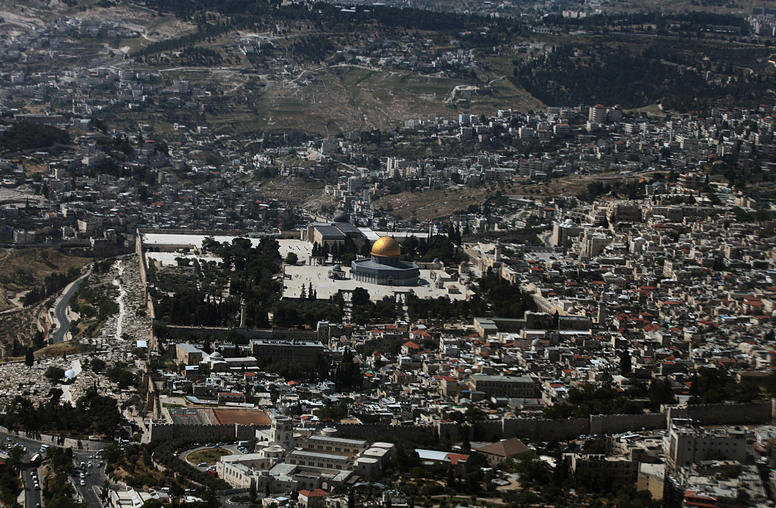
What Does President Trump’s Decision on Jerusalem Mean for Israeli-Palestinian Peace?
Today, President Trump—for the second time while in office—exercised his waiver authority on the 1995 Jerusalem Embassy Act. The law calls for the United States Embassy, currently located in Tel Aviv, to be moved to Jerusalem, in recognition of that city as Israel’s capital. The choice to waive enactment in the name of national security interests hits the president’s desk every six months and, beginning with President Clinton in 1998, has been continuously exercised by each president. But this time was different.
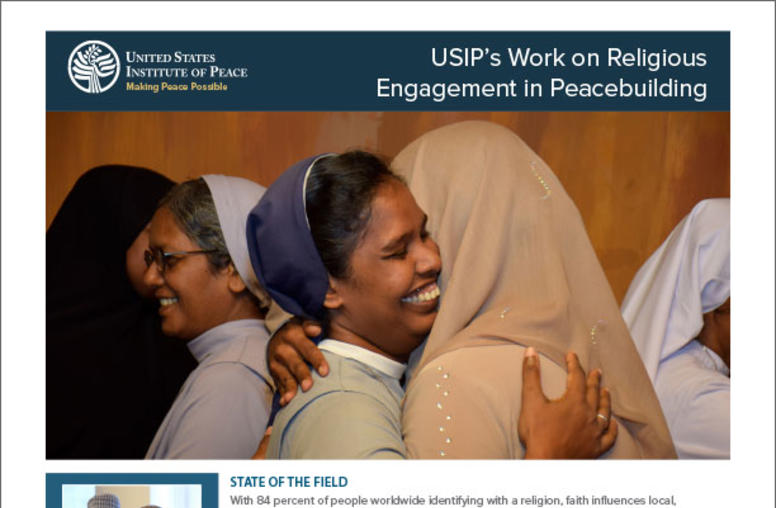
Religious Engagement in Peacebuilding
With 84 percent of people worldwide identifying with a faith tradition, religion influences local, national, and international decision-making. Across the globe, violent extremism often is couched in religious terms, and religious discrimination is on the rise. At the same time, people of faith and religious organizations frequently are on the frontlines of peace efforts, assisting communities affected by violence. Although religious considerations have been marginal to peace efforts historically, governments and peacebuilding organizations increasingly recognize the importance of religion.

Scott Worden on The Asia Foundation's 13th Annual Survey of the Afghan People
On the heels of the Asia Foundation's 13th annual Survey of the Afghan People, Scott Worden discusses key findings, trend lines, reasons for optimism and important points of concern that stem from the
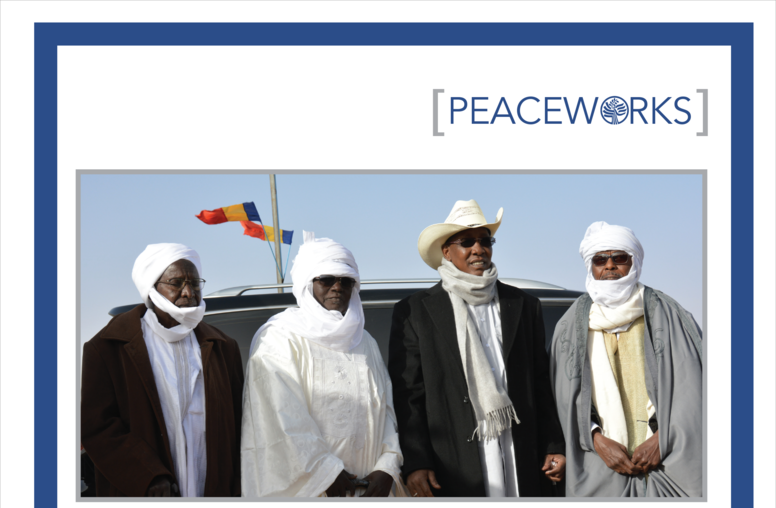
Déby’s Chad
Since gaining its independence from France in 1960, Chad has evolved from a one-party state into a multiparty regime, endured successive rebellions, and become an interventionist regional actor. Thanks to both an oil boom and corruption, segments of the Chadian elite have become very rich, but most of the population is...
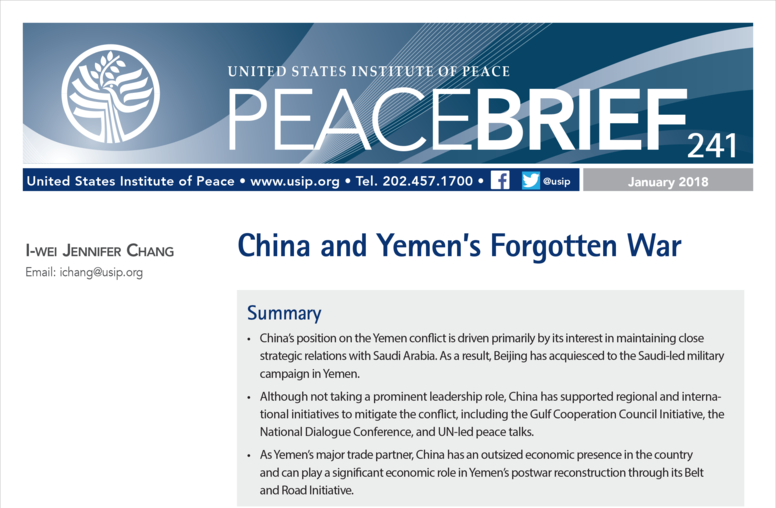
China and Yemen’s Forgotten War
Yemen is facing an acute humanitarian crisis after nearly three years of civil war, with more than 10,000 deaths and three-quarters of the country’s population in dire need of humanitarian assistance. Although eschewing a leadership role, China has supported regional and international efforts to mitigate the...
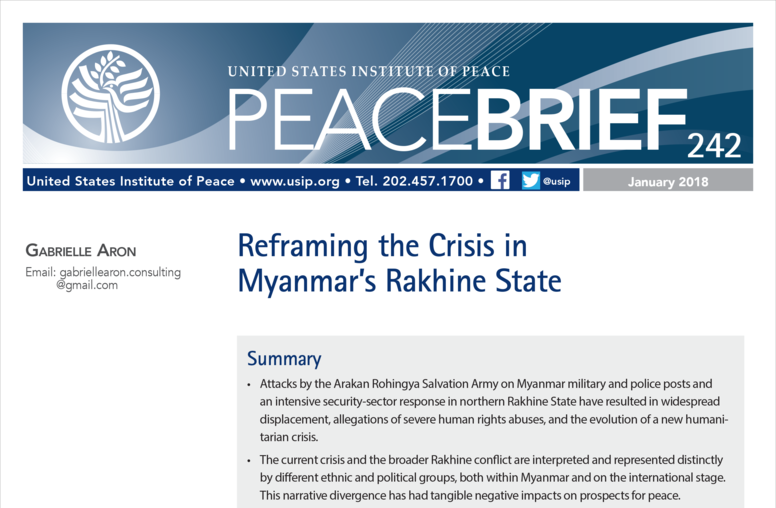
Reframing the Crisis in Myanmar’s Rakhine State
In the aftermath of attacks by the Arakan Rohingya Salvation Army and subsequent military clearance operations, two competing narratives have emerged. One frames the attacks as a critical threat to national security and the majority cultural-religious status quo. The second focuses on the human cost...
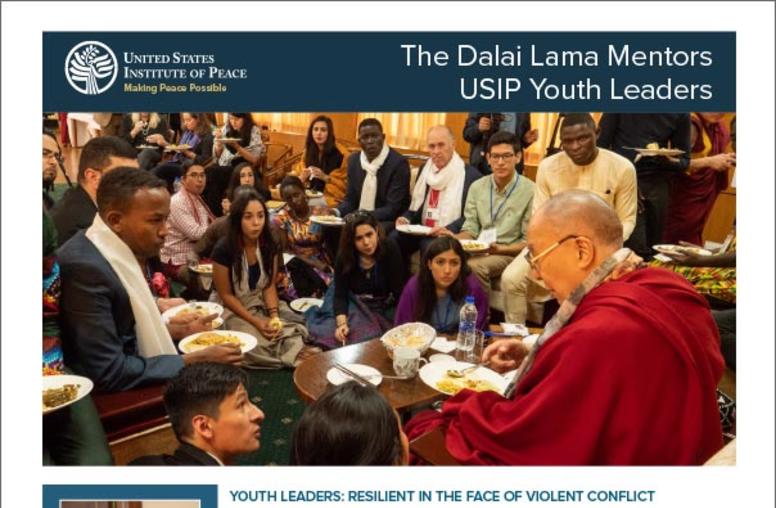
The Dalai Lama Mentors USIP Youth Leaders
Each year, the U.S. Institute of Peace gathers 28 youth leaders from countries confronting violent conflict to meet with His Holiness the 14th Dalai Lama in Dharamsala, India, where he encourages them in their efforts to build peace in their homelands. This annual dialogue is a partnership between USIP and the Dalai Lama, a global voice for peace and 1989 Nobel Peace Prize laureate. The project aims to strengthen the abilities of young people working to build peace in the world’s most violent regions.